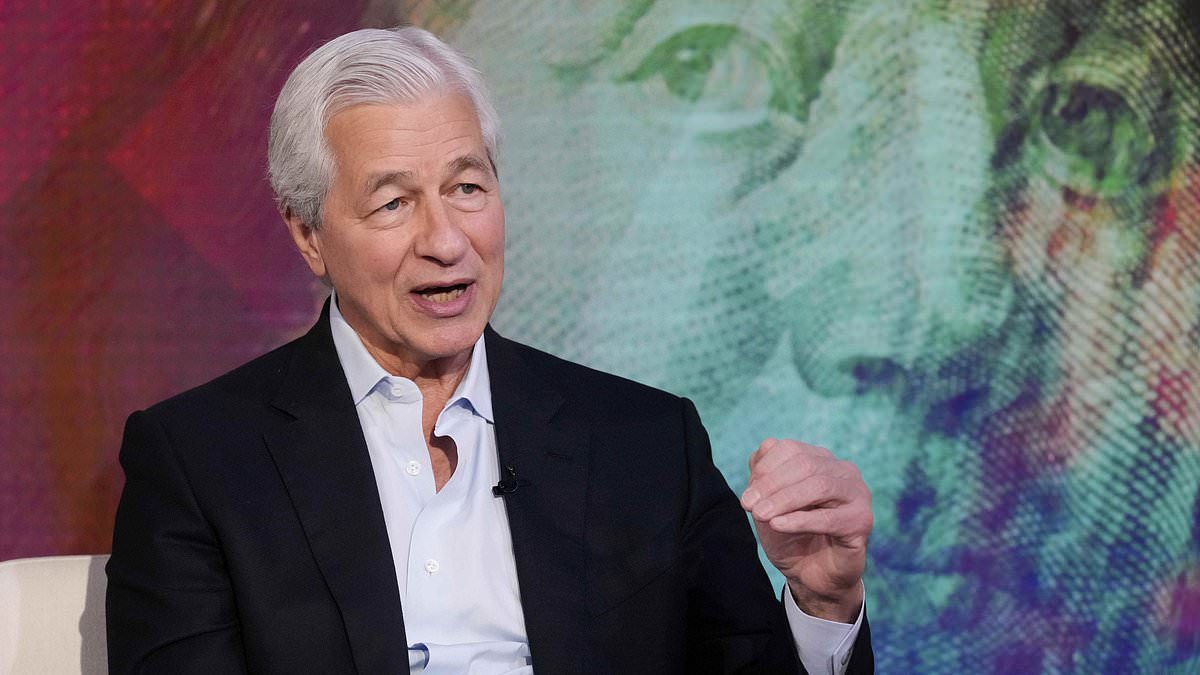Copyright dailymail

CEOs are livid about how comfortable employees are with using their phones during meetings, but staff blame their increasing workload on departments being cut thin and new hires being rare. Fed-up top management at companies like JP Morgan and other powerful organizations shared their plans to combat the lack of attention at conferences with the Wall Street Journal. In an annual letter to investors sent in April, the CEO of JP Morgan, Jamie Dimon, was clear on his stance on screen time in a work assembly: 'This has to stop. It’s disrespectful. It wastes time. 'If you have an iPad in front of me and it looks like you’re reading your email or getting notifications, I tell you to close the damn thing,' he reinforced at Fortune’s Most Powerful Women Summit. Rage at the devices comes at a time of a stagnant job market, where teams aren't growing but are expected to increase results, which, of course, adds more to employees' workloads. In May, the US had one of its slowest hiring months in years, with private payrolls increasing by only 37,000 jobs. However, employees say the rules have changed with their busy schedules, staff are expected to respond quickly to meet deadlines, regardless of where they are reporting to the outlet. Staying on schedule may be impossible for team members when CEOs refuse to share Wi-Fi passwords during meetings. Brad Fixler, a vice president of marketing at the Colorado-based healthcare system UCHealth, allowed no one to connect to the WiFi in a meeting room. Fixler told the publication that he found it increased the quality of the discussion and that the group appeared less stressed because they were not bound to their devices. He added that if someone needed to use their phone, they could do so elsewhere. Additionally, the vice president planned to take measures even further by implementing a system similar to a swear jar. 'If the phone is visible during a meeting, then money goes into the phone jar. We can gamify the rules,' said Fixler to the website. On top of that, other companies, like UGK workforce management and HR-software business, said their associates are embracing no-phone zones. Bob DelPonte, the company’s chief customer experience officer, said his co-workers are calling each other out for excessive phone use with phrases like: 'Hey, you know, you seem to be somewhere else.' What bosses may not realize is that during conferences, employees use phones to communicate with others in the meeting or to compare notes. Parallel conversations are reported to be part of modern-day meeting culture, according to the Wall Street Journal. On the other hand, the ban on devices by CEOs could be contributing to the overwhelming stress staff have been put under this year. Burnout reached 66 precent among Americans at some point this year, according to a study by Moodle. Not all business heads see phones as a threat to the productivity of their meetings. Andy Decker, CEO of Goodwin Recruiting, finds the devices to be helpful. Decker told the outlet that while hosting remote calls with his team, he'll at times get messages that he is losing the group's attention and will move on to keep the discussion interesting. Decker's approach may be more acceptable to stressed-out staff in the seemingly worsening work culture that 2025 has brought. In March, nearly 40 percent of workers surveyed reported crying at work, according to Modern Health.



